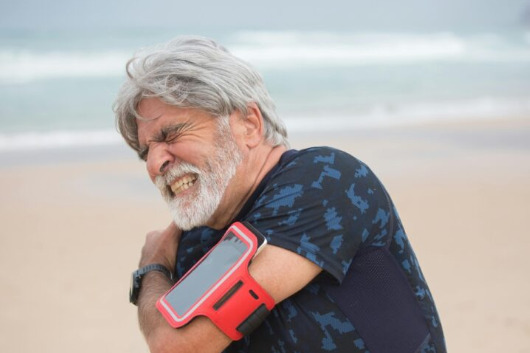#inflammatory
Note
🍓:3
HAIII FINCH ! you are so cool man, you’re so multi-talented it is awesomely swag. i feel like you’re good at everything. i luv seeing your art and your posts abt guitar guys <3 also thanx for being into tma around the same time as me it was fun :)
5 notes
·
View notes
Text
I can’t believe I have to eat a certain diet to have clear skin. Not. Cool. At. All.
And right now we have so much sugar and candy at home and of course as I lack self control I’m acting like a pig, a glutton!!!! Ugh!!!

Anywho!
You know the drill already!
I LOVE YOU SO MUCHHHHHH!!!!!
Mommy loves you!!!! Mwahh!
Goodnight!!🩷💤🌙
#anti inflammatory#inflammatory#non inflammatory diet#acne#bad skin#dieting#coquette#coquette aesthetic#girlblogging#girly blog#girly girl#let’s be friends#looking for friends#be my frieeennnddd#be my friend#wanna be friends?
12 notes
·
View notes
Text
#suella braverman#uk#politics#tory#conservative party#nasty party#ukpol#racist#far right#inflammatory#culture war#rhetoric
9 notes
·
View notes
Text
These foods are like throwing fuel on the inflammation fire, yet we Americans love them. It’s no coincidence the disease rate is steadily climbing at an alarming rate. Where there is disease, there is inflammation.
#inflammation #inflammatory #acidic #healthtips #healthfacts #guthealth #brainhealth #healthylifestyle #nutrition #food #mentalhealth #health #wellness #healthyliving #healing #arthritis #pain #cbd #painrelief #healthy #chronicpain #diabetes #jointpain #detox #chronicillness #autoimmunedisease #ibs #holistichealth #stress #omega
3 notes
·
View notes
Text
Study finds higher risk of premature death among patients with pediatric onset immune-mediated inflammatory disease
Study finds higher risk of premature death among patients with pediatric onset immune-mediated inflammatory disease
Patients with a pediatric onset immune-mediated inflammatory disease (pIMID) have a significantly higher risk of premature death, according to new research being presented today at the 54th Annual Meeting of the European Society for Paediatric Gastroenterology, Hepatology and Nutrition (ESPGHAN).
Whilst higher mortality was found in patients across all included pediatric onset immune-mediated…

View On WordPress
#Among#cancer#children#death#disease#finds#Gastroenterology#Hepatology#Higher#hospital#immunemediated#inflammatory#Inflammatory Bowel Disease#Inflammatory Disease#liver#Liver Disease#medicine#mental health#Mortality#nutrition#onset#Paediatrics#patients#Pediatric#premature#research#Risk#study#Vasculitis
2 notes
·
View notes
Text

144K notes
·
View notes
Text
Yoga Instructor on Men's Vanity
Yoga Instructor knows that super inflammatory comments about a man’s appearance is who’s hitting on you can escalate to a dangerous situation. So instead of telling the relentless oaf, “Hell no, you look like cat ick,” be like Yoga Instructor and say,
Yoga Instructor #10
– Paul De Lancey, The Comic Chef, Ph.D.
My cookbook, Following Good Food Around the World, with its 180 wonderful recipes, my…

View On WordPress
#appearance#body#cat#dangerous#gauze#God#Greek#inflammatory#men&039;s#murders#oaf#relentless#vanity#yoga#yoga instructor
0 notes
Text

Call for Abstract: Track 1: Gastroenterology
Present your presentation/research/abstract at the CME/CPD accredited 14GASTROUCG Conference from December 17-19, 2024, in Holiday Inn Dubai, UAE & Virtual, in attempt to even further boost the influence of your research by trying to present it to a global delegation.
WhatsApp us: https://wa.me/442033222718?text=
Submit your abstract/papers here: https://gastroenterology.universeconferences.com/gastroenterology/
#hepatology#Gastroenterology#GIHealth#DigestiveHealth#GIResearch#IBD#Inflammatory#BowelDisease#Hepatology#Gastrointestinal#IBDWarrior#StomachHealth#GallbladderHealth#Pancreatitis#GutMicrobiome#GI#GIIBD
0 notes
Text
Can You Have Joint Pain Without Inflammation

Joint pain is a frequent and aggravating condition that can significantly reduce one's quality of life. Although inflammation is frequently related with joint discomfort, it is not the only cause. Several illnesses, including osteoarthritis, rheumatoid arthritis, gout, and injury, can cause joint discomfort. It is critical to see a doctor to evaluate the underlying cause of joint pain, as there are both inflammatory and non-inflammatory kinds.
0 notes
Text
Inflammatory bowel disease picks the cauldron to mend its "leaks": meet the latest possibilites
About drug options for IBD
Inflammatory bowel disease (IBD) refers to some chronic inflammatory conditions, mainly primarily Crohn’s disease (CD) and ulcerative colitis (UC). These autoimmune conditions against gut mucosa cause pain, bloating, indigestion and even bleeding with acute abdominal emergencies, severely impairing the quality of life in the long term. Initially, when the underlying…
View On WordPress
#&8220;leaks&8221;:#bowel#cauldron#disease#english#inflammatory#latest#magazine#picks#possibilites#uncategorized
0 notes
Text
#inflammable#inflammation#inflammatoryarthritis#inflammatory bowel disease#inflammationrelief#inflammatory
0 notes
Link
0 notes
Text
Hidradenitis suppurativa

Overview
Hidradenitis suppurativa (HS), also known as acne inversa, is a chronic and often debilitating skin disease that affects hair follicles and sweat glands in areas of the body with skin folds, such as the armpits, groin, and buttocks. HS typically begins as painful, inflamed, and recurrent nodules or abscesses that may progress to draining sinuses or scarring.
The exact cause of HS is unknown, but it is thought to be a combination of genetic, environmental, and immune system factors. Risk factors for HS include obesity, smoking, hormonal imbalances, and a family history of the disease.
HS is often misdiagnosed or undiagnosed for years, leading to significant delays in appropriate treatment. Treatment options for HS vary depending on the severity and location of the disease, but may include topical or systemic medications, surgical interventions, and lifestyle modifications.
Living with HS can be challenging and may significantly impact a person's quality of life, including their ability to work, exercise, and engage in social activities. It is important for individuals with HS to work closely with their healthcare provider to manage symptoms and receive appropriate care.
Symptoms
The symptoms of Hidradenitis Suppurativa can vary widely from person to person, and can range from mild to severe. Some common symptoms include:
- Painful, inflamed, and recurrent nodules or abscesses in the skin folds, such as the armpits, groin, and buttocks.
- Drainage of pus or other fluids from the affected areas.
- Formation of tunnels or tracts under the skin, connecting the affected areas.
- Scarring and thickened skin.
- Itching and burning in the affected areas.
- Limited mobility or flexibility due to pain and swelling.
- Bad odor or foul-smelling discharge from the affected areas.
- Depression and anxiety due to the chronic and disfiguring nature of the disease.
It is important to note that not all individuals with HS experience all of these symptoms, and some may only have mild symptoms that come and go over time. It is important to seek medical attention if you experience any of these symptoms or suspect that you may have HS. Early diagnosis and treatment can help manage symptoms and prevent further complications.
When to see a doctor
If you experience any symptoms of Hidradenitis Suppurativa, it is important to see a doctor or dermatologist for an evaluation and diagnosis. In particular, you should seek medical attention if you experience:
- Painful, recurring lumps or bumps in areas with skin folds, such as the armpits, groin, or buttocks.
- Pus or other fluids draining from these areas.
- Skin changes, such as thickened, scarred, or discolored skin.
- Development of tunnels or tracts under the skin.
- Limited mobility or flexibility due to swelling and pain.
- Psychological symptoms, such as depression or anxiety, related to the condition.
- Symptoms that interfere with your daily activities, such as work or exercise.
Early diagnosis and treatment of HS can help manage symptoms and prevent further complications. Your doctor may recommend lifestyle changes, topical or oral medications, or surgical intervention depending on the severity of your condition. If you suspect you have HS or are experiencing any of the symptoms mentioned above, make an appointment with your doctor or dermatologist as soon as possible.
Causes
The exact cause of Hidradenitis Suppurativa is not fully understood, but it is believed to be a combination of genetic, environmental, and immune system factors. Here are some possible causes:
- Genetics: There is evidence to suggest that HS may be inherited, with about one-third of people with HS having a family history of the condition.
- Hormones: Hormonal changes, such as those that occur during puberty, menstrual cycles, or pregnancy, may trigger the development of HS.
- Immune system dysfunction: HS is thought to be an autoimmune condition, meaning that the immune system attacks healthy tissue in the skin.
- Bacterial infection: Some studies suggest that certain types of bacteria may contribute to the development and progression of HS.
- Lifestyle factors: Smoking, obesity, and stress may increase the risk of developing HS or worsening symptoms.
- Friction or pressure: The constant friction or pressure from tight clothing or repeated shaving of the affected areas may contribute to the development of HS.
It's important to note that while these factors may increase the risk of developing HS, they do not necessarily cause the condition in all individuals. Further research is needed to fully understand the underlying causes of HS.
Risk factors
Several risk factors have been identified for Hidradenitis Suppurativa, including:
- Gender: HS is more common in women than in men.
- Age: HS usually develops after puberty and affects people in their teens and twenties, although it can occur at any age.
- Genetics: As mentioned earlier, about one-third of people with HS have a family history of the condition, suggesting a genetic component.
- Hormonal changes: Hormonal changes, such as those that occur during puberty, menstrual cycles, or pregnancy, may trigger the development of HS.
- Obesity: Obesity has been linked to an increased risk of developing HS, possibly due to increased friction and sweating in skin folds.
- Smoking: Smoking has been shown to increase the risk and severity of HS, possibly due to its effect on the immune system.
- Stress: Chronic stress may contribute to the development or worsening of HS.
- Certain medical conditions: People with other inflammatory conditions, such as Crohn's disease or psoriasis, may be at increased risk of developing HS.
- Shaving or other hair removal methods: Shaving or other hair removal methods can cause skin irritation and lead to the development of HS in some people.
It's important to note that having one or more of these risk factors does not necessarily mean that a person will develop HS, and some people with HS may not have any of these risk factors. However, understanding these risk factors can help individuals identify potential triggers and work with their healthcare provider to manage their symptoms.
Complications
Hidradenitis Suppurativa can lead to a number of complications, some of which can be serious. Here are some potential complications:
- Scarring and disfigurement: HS can cause scarring and thickening of the skin in the affected areas, which can be permanent and disfiguring.
- Abscesses and infections: Recurrent abscesses and infections can occur in the affected areas, which can be painful and require medical treatment.
- Fistulas and sinuses: Over time, HS can cause the formation of abnormal connections between the affected areas, called fistulas and sinuses, which can be difficult to treat.
- Limited mobility: Severe HS can cause limited mobility and make it difficult to perform daily activities, such as walking or exercising.
- Depression and anxiety: The chronic and disfiguring nature of HS can lead to depression and anxiety, which can further impact a person's quality of life.
- Cancer: Studies have suggested that long-term inflammation associated with HS may increase the risk of certain types of cancer, although more research is needed to confirm this link.
It's important to seek medical attention if you experience any complications associated with HS. Early diagnosis and treatment can help manage symptoms and prevent further complications.
Natural remedies
While there is no known cure for Hidradenitis Suppurativa, there are some natural remedies that may help manage symptoms. Here are some natural remedies that people with HS may find helpful:
- Turmeric: Turmeric contains a compound called curcumin, which has anti-inflammatory properties. Some studies have shown that taking turmeric supplements may help reduce inflammation in people with HS.
- Tea tree oil: Tea tree oil has antimicrobial properties and may help prevent infection in the affected areas. It is important to dilute tea tree oil before using it on the skin, as it can be irritating when used in its pure form.
- Aloe vera: Aloe vera has anti-inflammatory and antimicrobial properties and may help reduce inflammation and prevent infection in the affected areas. Apply aloe vera gel to the affected areas to soothe the skin.
- Coconut oil: Coconut oil has antibacterial properties and may help prevent infection in the affected areas. Apply coconut oil to the affected areas to moisturize the skin and prevent dryness.
- Zinc supplements: Some studies have suggested that taking zinc supplements may help reduce inflammation in people with HS.
It is important to note that natural remedies should not be used as a substitute for medical treatment. People with HS should talk to their healthcare provider before trying any natural remedies, as some remedies may interact with medications or cause allergic reactions.
Read the full article
#abscesses#acne#acneinversa#activities#boils#care#Causes#chronicdisease#clothing#development#diagnosis#full#health#Hidradenitissuppurativa#HS#inflammatory#long-term#lumps#men#Natural#naturalremedies#risk#Skin#skincondition#skinlesions#style#symptoms#Treatment#women
0 notes
Text
0 notes
Text
Inflamed: Deep Medicine and the Anatomy of Injustice (ENCORE)
Inflammatory diseases are on the rise around the world, and doctors are finally starting to pay more attention to them. But why does a beneficial part of our immune system turn unhealthy? Raj Patel and Rupa Marya think it has a lot to do with the world we’re forced to live in. They talk about the collapse of our planet and what it has to do with inflammation, and how our bodies are a mirror of…

View On WordPress
0 notes